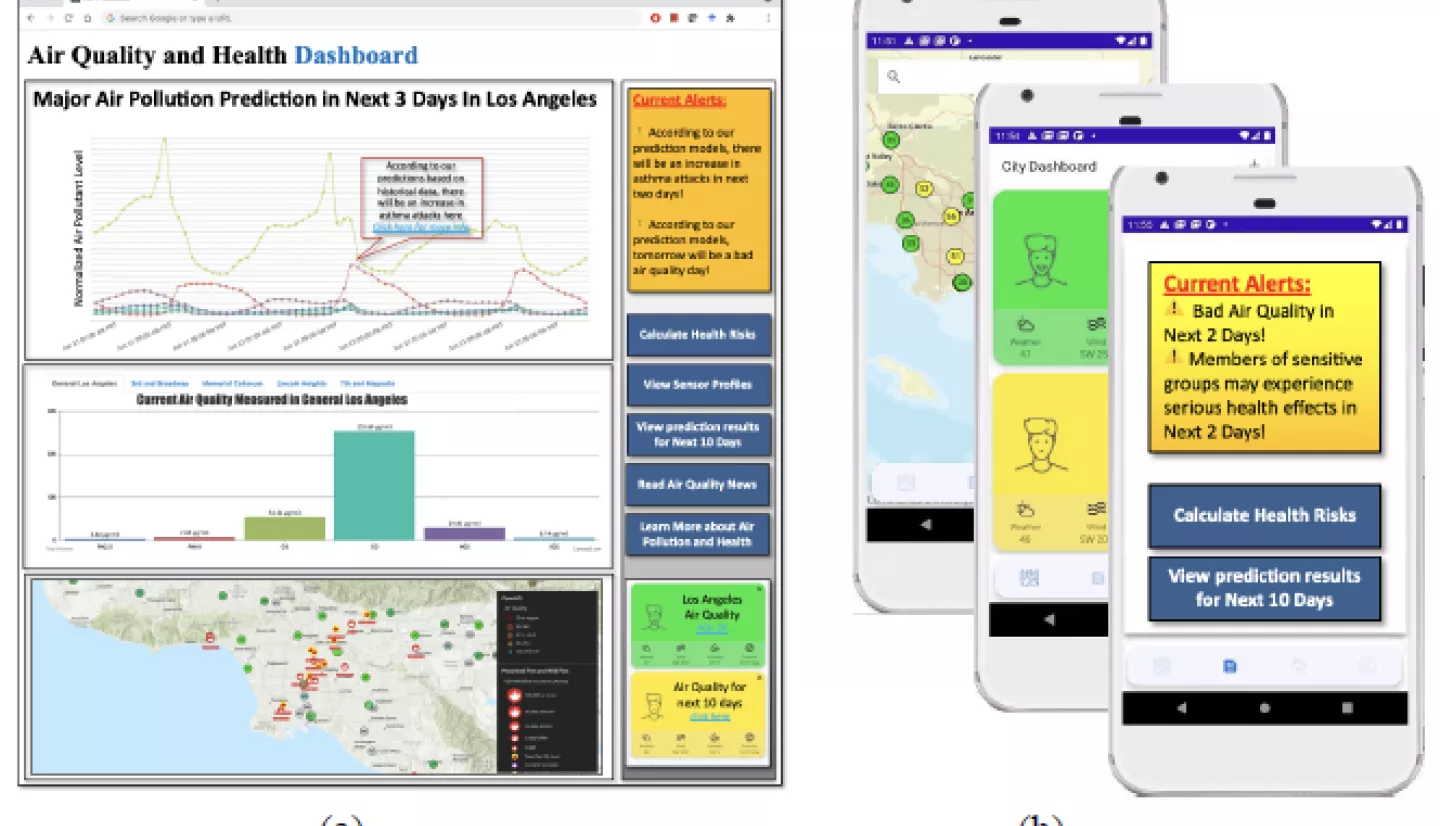Team Members: Chisato Calvert (Openaq INC.); Jeanne Holm (City of Los Angeles); Mohammad Pourhomayoun (California State University, Los Angeles)
Executive Summary: Every 5 seconds, someone dies from the effects of air pollution; in fact, it is responsible for the early deaths of 7 million people every year and 107.2 million disability-adjusted-life-years globally. According to the American Lung Association and NIH National Institute of Environmental Health Science, poor families and people of color often face higher exposure to air pollutants and experience greater health impacts. Our recent study on the people of California demonstrates that minority and low-income communities tend to be exposed to higher levels of air pollution and are hit hardest by the adverse health consequences of air pollution.
The integration of socioeconomic data with ground-based data, satellite data and other Earth observations, along with advanced data analytics and machine learning methods can significantly improve our understanding of air pollution, enable us to predict air pollution and its health effects, and enhance our capabilities to support the most vulnerable people, including minority and low-income communities that tend to be exposed to higher levels of air pollution and its health consequences.
In this project, we create a Predictive Environmental Analytics and Community Engagement system for Equity and Environmental Justice (PEACE for EEJ) to increase the accessibility and use of Earth observations and socioeconomic data for understanding air quality and integrate it into governmental and health organizations’ decision making processes to support equity and environmental justice. We are developing advanced data analytics algorithms, machine learning (ML)-based models, and user interfaces (UIs) that link Socioeconomic data with ground-based in-situ and space-based Earth observations to (a) identify, discover, and classify patterns in urban air quality, (b) enable the forecast of air pollution events for air quality management and decision making, (c) understand and predict the impact of air pollution on people’s health, (d) identify and support the neighborhoods and communities that face higher exposure to air pollutants and experience greater health impacts, and (e) provide information about air pollution predictions and future health effects/risks through a mobile application and a web dashboard. The PEACE for EEJ project will provide novel and critical air quality and health data for the City of Los Angeles and its 4 million residents by bringing the data to the public in a way that works across communities and cultural differences and specifically analyzes, engages, and responds to needs for environmental justice.
